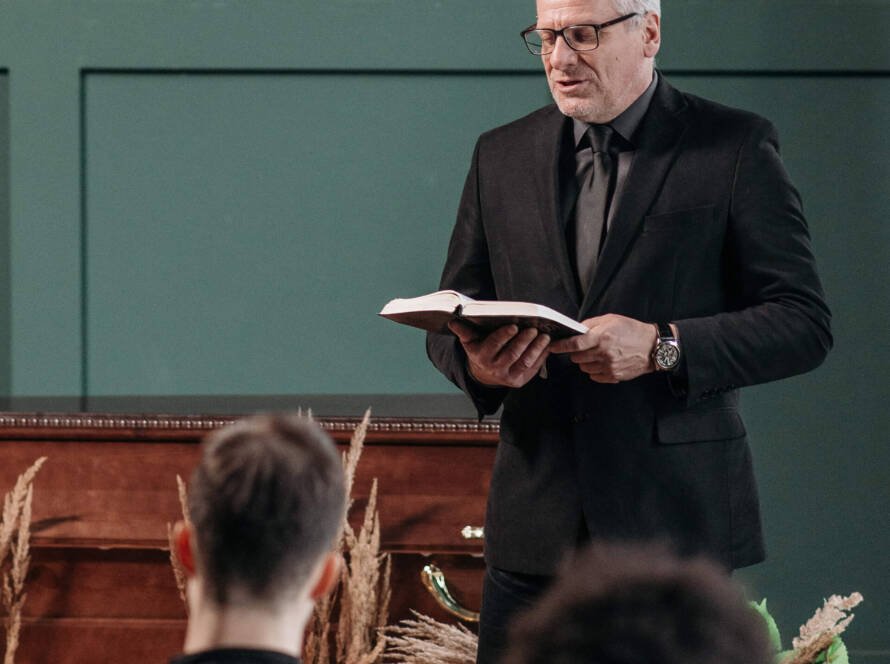Grief is a universal experience—one that touches every life at some point. Losing a loved one can leave you feeling overwhelmed, empty, and unsure of how to move forward. While there is no single “right” way to grieve, understanding the process and finding practical strategies can help ease the journey.
At Graceful Departures, we believe that healing after loss is not about forgetting, but about learning to live with love and memory in a new way. In this article, we’ll explore practical tips and resources to support you through grief.
Understanding the Stages of Grief
Psychologists often describe grief in stages, though everyone’s experience is unique. The five commonly recognized stages include:
-
Denial – A sense of shock or disbelief about the loss.
-
Anger – Frustration and questioning “why it happened.”
-
Bargaining – Wishing for different outcomes or imagining “what ifs.”
-
Depression – Deep sadness, loneliness, or withdrawal.
-
Acceptance – Finding peace and adjusting to a new reality.
It’s important to remember that these stages are not linear. People may move back and forth between them, or experience them differently depending on culture, personality, and the nature of the loss.
The Importance of Self-Care
Grief takes a toll not only on emotions but also on the body. During mourning, you may find yourself neglecting basic needs. Self-care is essential:
-
Eat well – Even small, healthy meals help maintain strength.
-
Rest – Sleep may feel difficult, but rest supports healing.
-
Exercise – Gentle movement such as walking, stretching, or yoga can reduce stress.
-
Breathe – Simple breathing exercises can calm overwhelming emotions.
Taking care of your physical health does not diminish your grief—it helps you endure it.
Talking About Your Loss
Grief can feel isolating, but sharing your feelings lightens the burden.
-
Talk to trusted friends or family – Sometimes, just being heard is enough.
-
Join support groups – Hearing from others who understand can bring comfort.
-
Consider counseling – A trained professional can provide guidance through complex emotions.
Speaking openly about your loved one keeps their memory alive and helps you process the loss.
Practical Coping Strategies
Everyone grieves differently, but these simple practices may help:
-
Journaling – Writing thoughts, memories, or letters to your loved one.
-
Creative expression – Painting, music, or storytelling can channel emotions.
-
Spiritual practices – Prayer, meditation, or attending faith gatherings.
-
Creating rituals – Lighting a candle daily, visiting a special place, or keeping a memory box.
Small, intentional actions can bring a sense of connection and comfort.
Supporting Children Through Grief
Children process loss differently from adults. They may not fully understand death but still feel its impact deeply. To support them:
-
Be honest and age-appropriate – Avoid confusing euphemisms like “gone away.”
-
Encourage questions – Let children express fears and curiosities.
-
Offer reassurance – Remind them they are safe and loved.
-
Model healthy grieving – Show that it’s okay to cry, remember, and heal.
Helping children through grief creates space for resilience and healthy emotional growth.
When to Seek Professional Help
Sometimes grief becomes overwhelming and begins to interfere with daily life. You may need extra support if you experience:
-
Prolonged inability to function at work or home.
-
Intense feelings of hopelessness or guilt.
-
Isolation from family, friends, or community.
-
Reliance on alcohol, medication, or harmful behaviors to cope.
Counselors, therapists, and faith leaders can provide guidance, tools, and comfort in these moments.
Community and Support Networks
Healing is not a journey to be taken alone. Many families find strength in community:
-
Faith groups – Provide spiritual support and rituals for healing.
-
Bereavement groups – Offer understanding and solidarity.
-
Family gatherings – Sharing meals, stories, and prayers fosters togetherness.
At Graceful Departures, we also encourage digital communities and memorial spaces where families can connect and share memories, especially when distance makes physical gatherings difficult.
Supporting Others Who Are Grieving
If someone close to you is grieving, you may not always know what to say or do. Some meaningful ways to help include:
-
Be present – Sometimes silence and presence are more powerful than words.
-
Offer practical help – Meals, errands, or childcare can ease burdens.
-
Avoid clichés – Phrases like “they’re in a better place” may feel dismissive.
-
Check in regularly – Grief doesn’t end after the funeral; ongoing support matters.
Compassion, patience, and consistency are the best gifts you can give to someone in mourning.
Conclusion: Healing Is a Journey
Grief does not follow a timeline. It comes in waves, and healing is often a slow, ongoing process. What matters most is allowing yourself to feel, remembering your loved one, and finding healthy ways to move forward.
At Graceful Departures, we walk alongside families not only in planning dignified farewells but also in supporting the journey afterward. Through compassion, community, and remembrance, healing is always possible.



